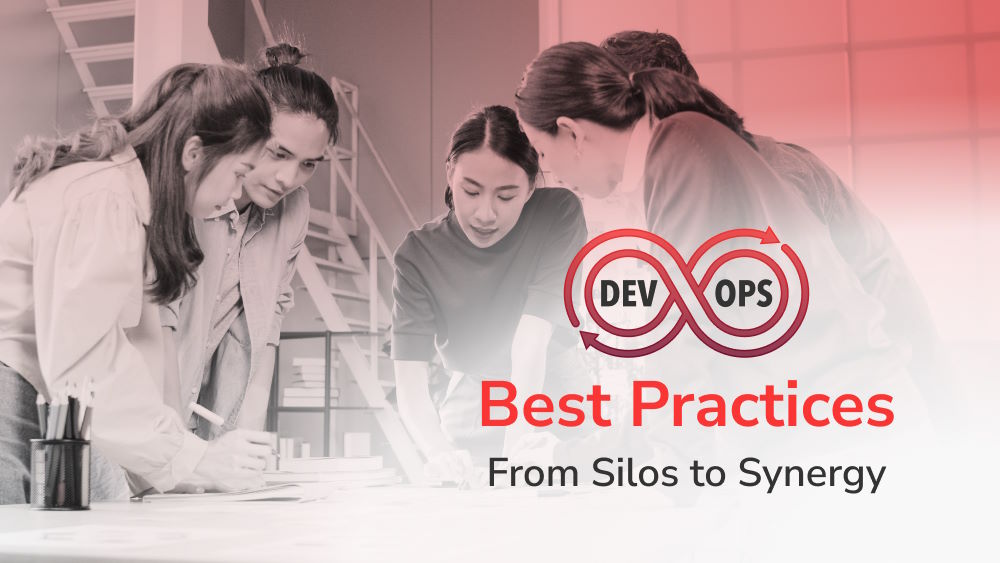Mastering DevOps for Enterprise Principles and Practices

Content Map
More chaptersAmazon, arguably the largest e-commerce platform in the world, has implemented an enterprise DevOps strategy that utilized Docker, Infrastructure as a Code (IaC), and microservice architecture to sustain top performance and optimal availability across its extensive platform. Netflix’s application of tools like Chaos Monkey from the “Netflix Simian Army” highlights the organization’s success in fostering a resilience culture and organizational adaptability for DevOps objectives. At Capital One, their goal was to deliver high-quality software faster and redefine DevOps as an approach to optimize the SDLC - software development lifecycle.
These examples show how DevOps methodologies are used in large enterprises. Being highly regulated and massive in size brings challenges, including potential pushback from all levels of development and operations teams - when implementing the DevOps mindset and methods, but these giants have made it happen. This article will zoom in on DevOps in major firms and how it is implemented.
What Is Enterprise DevOps and How Is It Different from Standard DevOps?

Definition
DevOps Enterprise, also known as DevOps for large organizations, is an approach to software development and IT operations tailored for big companies. It focuses on automating tasks and fostering collaboration to improve reliability, security, and scalability in the software development lifecycle (SDLC). Unlike standard DevOps, which concentrates on the continuous integration/continuous deployment (CI/CD) pipeline, DevOps enterprise addresses challenges specific to managing large systems, optimizing workflows, and meeting security standards. It emphasizes security, scalability, and early error detection, aiming to align business and IT goals for faster and more efficient software development.
Key Aspects
Enhanced Security
DevOps Enterprise prioritizes data protection and regulatory compliance through DevSecOps practices.
Scalability and Adaptability
One of the key aspects of enterprise DevOps tools is the strategies and tools implemented to handle the evolving demands and traffic spikes.
Early Verification and Validation
The “shift left” approach aims to identify and resolve bugs early in development, enhancing software quality and reducing time spent on resolving issues later in the pipeline.
Alignment of Business & IT
Implementing DevOps for major firms aims to bridge the gap between business objectives and IT processes. In other words, the gap between development and operation teams for an efficient software development process.
Collaboration, Security, & Scalability
Much like the standard approach, DevOps Enterprise fosters collaboration, security, and scalability across large organizations.
What Sets Enterprise DevOps apart from Standard DevOps?
Both standard DevOps and enterprise DevOps are like well-oiled cars. While standard DevOps is more like a high-performance car - meaning it is fast and agile, it might not be the best choice when you need to carry dozens of people in more extreme conditions. Enterprise DevOps is made to carry large loads and navigate challenges while keeping passengers and packages safe and secure. In short, standard DevOps and enterprise DevOps are made to cater to different needs.
Why Choose DevOps for Enterprise in Software Development?

Enterprise DevOps solutions share the core benefits with standard DevOps. Building on the major advantages, it highlights advanced security and scalability to satisfy the needs of large organizations with complex environments.
- Faster Software Delivery: DevOps aims to enhance collaboration to achieve a shorter development cycle. Faster product delivery increases business value and improves customer satisfaction.
- Faster Innovation: Faster development cycles, achieved by stronger collaboration, give development teams more chances to test and develop new features without disrupting ongoing projects.
- Boosted Productivity: DevOps culture not only encourages collaboration between team members but also streamlines processes by eliminating silos.
- Automation: Eliminating repetitive tasks allows the development team to focus on high-level tasks, speed up deployment and save time. Routine components like testing can also be automated.
- Robust Security: DevSecOps practices create a stronger security posture and safeguard sensitive data while complying with regulatory standards. In addition, agile development enables rapid responses to vulnerabilities.
- Scalability and Adaptability: Implementing enterprise DevOps creates a smooth scaling experience as it was designed to handle large and complex IT infrastructures in mind. This means there should be no problem for DevOps teams when there is a change in user demands or traffic spike.
Key Enterprise DevOps Principles to Implement DevOps at Scale
Adopting enterprise DevOps means you must support numerous teams, workflows, release cycles, pimples, applications, and tools. It is crucial for your business to utilize the correct DevOps practices while following the following five key principles for successful enterprise DevOps implementation.
Central Management of End-to-End DevOps Processes and Their Output
The first principle highlights the centralized management of end-to-end DevOps processes and their output.
A DevOps platform plays a key role in managing the entirety of SLDCs. It is a centralized solution that manages workflows and orchestration, builds output from a single solution, and manages container images, CI/CD pipelines, compliance, security, and software distribution.
All in all, the DevOps platform should be able to automate and orchestrate all point tools, processes, package types, and environments to support all technology stacks and artifacts. In other words, a DevOps platform manages both the building and deploying software (like CI/CD pipelines) and the resulting outputs (like binaries and container images). Here is why it is important, as it gives the DevOps team:
- A clear view of all the processes and software assets in a centralized place.
- A streamlined and accurate workflow.
- Consistent and traceable software components throughout the lifecycle.
- Security and Compliance.
- A centralized repository for software artifacts and configurations.
- Better collaboration.
Security From the Start
A key aspect of enterprise DevOps is its robust security measures from the development processes to deployment to production. Hence, the second principle of DevOps for large firms is the highlight of security and early vulnerability detection (shift-left).
In today’s IT landscape, a significant portion of application code relies on third-party open-source components. Hence, businesses are much more vulnerable to security risks. To address such challenges, security and compliance checks must be prioritized and integrated seamlessly. This includes:
- Security checks are integrated into the entire software lifecycle, not just performed at the end.
- We embrace open-source components, but the security risks associated with them need to be managed carefully.
- The complex nature of modern applications like microservices and cloud risks increase the attack surface, requiring comprehensive security measures.
- Security testing and scanning should be automated and seamlessly integrated into the development workflow (CI/CD pipeline). This applies to all application dependencies (including container images) as well.
- In addition to security testing and scanning within the development workflow, security scans should be performed regularly across all code, repositories, and production instances.
- Vulnerabilities should be spotted and fixed as early as possible during development using IDE integrations.
- Implement security and compliance policies based on project stage and company maturity with flexible enforcement levels.
Future Proof with Cloud Native: The Modernization Imperative
Organizations that embrace DevOps must accommodate the modernization of applications. This means embracing cloud-native architectures while supporting legacy applications. In other words, the third principle of DevOps focuses on future-proofing your development process and enabling smooth transition with:
- Hybrid support and unified management for both modern and legacy applications on the same platform.
- Multi-cloud flexibility: The platform should be able to operate in hybrid environments with on-premises, private cloud, public cloud, and edge computing infrastructure.
Pipeline As Code
Pipeline as code has revolutionized DevOps. The fourth principle concentrates on defining your development pipelines as actual codes stored in version control. This practice facilitates collaboration, version control, and reusability while also cutting down redundancy. Pipelines as code also standardize automation processes across teams, boosting productivity and governance.
Best practices for the pipeline as code include:
- Allowing dynamic inputs like configurations to make pipelines adaptable for different teams.
- Encourages clear and easily readable pipeline definitions.
- Enterprise DevOps accommodates legacy workflows for seamless integration.
Think Global, Act Local, And A Word on Platform Teams
The last principle discusses the systematic approach to enterprise DevOps, balancing standardization with team autonomy. This considers everything in your DevOps ecosystem, from technology choices and processes to teams and cultures.
- The core processes within a DevOps platform should be standardized, but there should be room for flexibility for different policies and tools. This approach prevents chaos by ensuring compliance and preventing controlling drift.
- DevOps teams play a key role in the management and adoption of DevOps across the organization.
- Standardize processes
- Provide self-service capabilities for developers.
- With pipeline as code, they scale and accelerate DevOps adoption.
- Maintain a central repository of vetted and secure software packages.
- Manage binary sharing and access control across teams and deployment stages.
Enterprise DevOps Adoption Strategies

As we are wrapping up this article, we would like to briefly go through the key enterprise DevOps strategy that you need to keep in mind.
- Start small: To implement a sustainable DevOps process, start on a small scale. After the first successes, gradually expand while keeping in mind the main aims, core values, and ownership of the delivery process by cross-functional teams.
- Keep the best practices in place: Don’t fix what isn’t broken. They are the best practices for a reason. Make adjustments where needed to improve efficiency and minimize risks.
- Improve communication: Enable real-time response and issue resolution between teams by utilizing the right tools.
- Don’t overlook the bigger picture: Involve relevant stakeholders and legal departments in the DevOps ecosystem for holistic compliance and boost productivity even further.
- Improve communication: Utilize communication and collaboration tools to bridge the gaps between development teams and operations teams, enabling real-time response and issue resolution.
- Prioritize security where it is needed and prioritize effective secret management.
- Hire DevOps experts: Engage with expert DevOps teams to provide comprehensive insight and assistance during the entire development process. Not only can your business benefit greatly by leveraging their expertise, but you can also enjoy faster delivery time and tailored solutions for specific enterprise demands.
Orient Software is a leader in software outsourcing and DevOps services. Clients from all around the world trust us as our team always puts our client’s needs first.
Contact Orient Software today to discover how we’ll assist you in achieving your development goals faster and more effectively!







